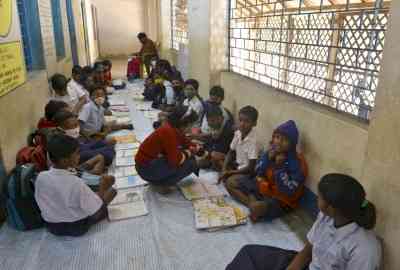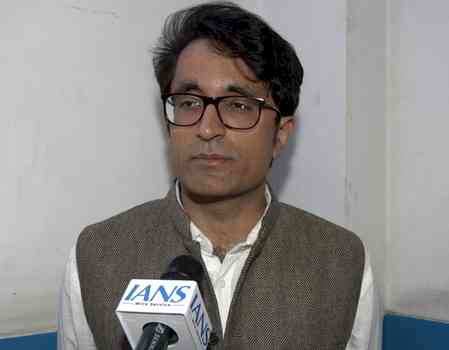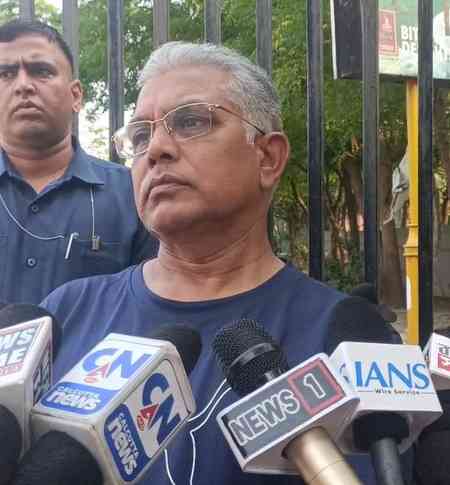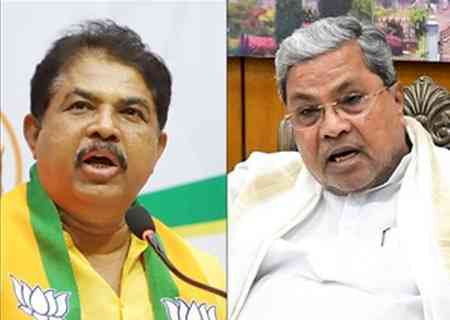Tribal students in MP's Ratlam take lessons on literature, media from veterans
Hundreds of girls and boys from tribal and other government schools took lessons on literature, media, content, digital journalism and social media during a two-day Malwa Media Fest which was held in Ratlam district of Madhya Pradesh.

Bhopal, Jan 29 (IANS) Hundreds of girls and boys from tribal and other government schools took lessons on literature, media, content, digital journalism and social media during a two-day Malwa Media Fest which was held in Ratlam district of Madhya Pradesh.
The students raised questions while listening to different sessions and the veteran guests, which included poet and writer Aalok Shrivastav, IIMC former Director General Sanjay Dwivedi and journalist and author Prakhar Shrivastav among others, helped them understand.
Answering a query of one of the students on his question if history is being changed, Prakhar Shrivastav said, “History is not being tried to be changed but is being tried to be corrected, he said.
Prakhar was speaking during the two-day Malwa Media Fest organised under the banner of Saksham Sanchar Foundation in Ratlam on Saturday and Sunday.
Speaking on the occasion, he shared his thoughts with the audience and questioned “Why was Mahatma Gandhi silent during the partition? Gandhi used to say that Pakistan will be made only after walking over my body. But then he kept silent even when the resolution for Pakistan was passed.”
The event was inaugurated on Saturday by former DG IIMC Professor Sanjay Dwivedi. Speaking on the occasion, he said, “The idea of India is a global idea. India's culture is such that it wishes for the well-being of the world. Therefore, India's idea is also acceptable at the global level.”
On this occasion, famous ghazal writer Alok Srivastava presented 'Aloknama'. He shared the struggle of his early days. He said that he speaks the language of India. “I am not a poet of either Hindi or Urdu language but am a poet of Hindustan," he said.
He also asked students to write not for ‘reels’ but for real.
The topics discussed were ‘New India – New Media’. Dwivedi said that the rise of digital media has played a big role in building the image of India. Due to the global reach of digital media, India's knowledge tradition has reached the global stage. He said that more than 320 crore photos are being shared on social media in a day and more than 800 crore videos are being watched. A person is spending 145 minutes per day on digital media. The number of social media users worldwide has reached approximately 3 billion 99 crore. The number of social media users in India is more than 60 crore, he added.
Famous poet Azhar Hashmi presented his poem ‘Woh Mujhko Ram Wala Hindustan Chahiye’ which was written in 1974 during the Emergency days. He told students that the writer needs to think ahead of time.
Renowned youTuber Ruchi Shrimali, and senior journalist Jitendra Jakhetia, now a faculty in Devi Ahilya Vishwavidyalaya and another journalist Hiren Joshi moderated the different sessions.
In a cultural exchange, Manganiyar singers from India-Pakistan borders presented their songs which left the audience mesmerised.
The educationists were in for a surprise from the effort.
A school principal, Gantantra Mehta from Kanya Parisar (tribal school), said, "This is quite an innovative step. For the first time, students learnt something different. Such events should be held regularly."
Vice principal from CM Rise school Gajendra Singh Rathore said, "This was an excellent event. The presentation and narration by veterans from media and literature is just exemplary and there cannot be nothing better than students learning live lessons."
Anjali Solanki, a student from Ratlam, said, "We were waiting for such a different opportunity for years. Now is the time when I will foray into media," she added.
Ashish Dashottar, a journalist and author from Ratlam was in awe to see veterans landing in this small town and teaching lessons to tribal students.
He said, "Ratlam has a glorious history in terms of media. The first female editor came from here. Hemant Kumari Chaoudharani started ‘Sugruhini’ magazine from Ratlam in Hindi- speaking belt in 1888 and hence became the first women editor in the country. Harivanshrai Bachhan read his poem 'Madhushala' for the first time in Ratlam. Dadasaheb Phalke also learned the three-colour block making, photolitho transfers, collotype and darkroom printing techniques under the guidance of Babulal Varuvalkar here.``
Pravina Davesar, an educationist, said that such events should be organised in small towns so that students here can learn modern skills and be a part of new India. This is actually implementing the new Education Policy on grounds and fulfilling all its objectives. It's the need of present day India.
It needs to be mentioned here that Saksham Sanchar Foundation is working to take media education to the last corner of the nation. It has been conducting workshops in small towns and villages to skill students in digital education so that stories of art, craft, culture of their local places can be made global.


 IANS
IANS 










